Top Tips on Buying an Electric or Hybrid Car
Car
7
min read
08 Feb 2021
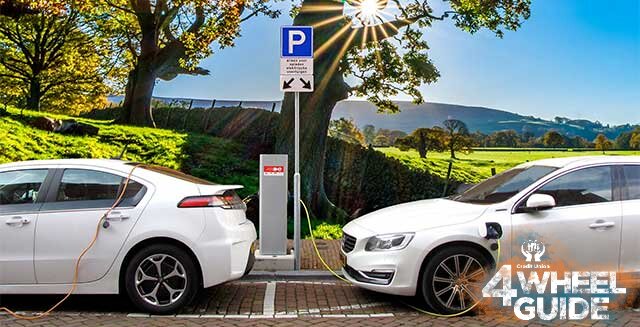
As the ‘green wave’ continues to rise in Ireland, sales of electric cars are steadily on the rise. 21% of all new cars licensed for the first time in January 2022 were electric or plug-in hybrid electric vehicles (PHEV) according to new figures from the Central Statistics Office.
The number of new electric cars licensed more than doubled from 739 in January 2021 to 1,813 in January of this year. Plug-in hybrid electric (PHEV) cars licensed grew by 82% in January 2022 compared with January last year.
And it looks as if the sale of electric cars will only continue to rise. The Irish Government published the Climate Action and Low Carbon Development (Amendment) Bill in October 2020. The aim is to commit Ireland, in law, to move to a climate-resilient and climate-neutral economy by 2050. While the Government says it remains committed to introducing a ban on fossil fuel cars, as the set out under previous plans, surprisingly the ban on the sale of new petrol and diesel cars and the importation of second-hand petrol and diesel cars from 2030 was omitted in the draft. A previously Government stated aim was to have 950,000 electric cars on the road by 2030 and in the recent budget, a range of measures was introduced to encourage a switch to greener cars.
In the UK, the Government announced plans last November to bring forward its ban on the sale of new petrol and diesel cars from 2040 to 2030, although some hybrids will be allowed until 2035. The ban is part of a 10-point plan set out to make the UK carbon-neutral by 2050.
So, if you’re thinking of going electric, you should of course be fully informed before making the purchase. Electric cars are after all more expensive than their petrol or diesel counterparts. That’s why we’ve answered some FAQs for the electric and hybrid car buyer below.
Are all hybrid cars created equal?
Within the hybrid range of cars, there are different types so before you start it pays to know the differences between your hybrid (HV), a plug-in hybrid (PHEV), and a mild-hybrid (MHEV)! The jargon alone can be enough to put you off, but don’t be scared – it’s all quite simple really!
Choose the one most suitable for your lifestyle. Do you regularly drive long distances or are you more city/town based? Budget will also come into it as will your choice if you want to lower your emissions – not all hybrids are created equally in that regard!
With traditional hybrids (HVs) sometimes also referred to as self-charging hybrids, there is no need to plug them in. The electric power is there to support the fuel engine and not replace it. You will find that with city driving the car will mostly run on electric power, making them more economical than your typical petrol or diesel car.
So what about plug-in hybrids (PHEVs)? These are a hybrid with a much bigger battery and a socket. The idea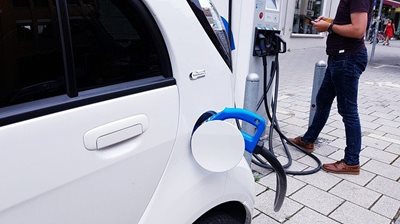 is that you plug them in and can be driven for a certain mileage on electric power alone like your day-to-day local driving such shopping, school runs etc., with zero local emissions, but you still have a petrol or diesel engine if you want to go on a longer journey. Like a pure electric vehicle you’ll also need to have some other form of off-street parking so that you can get a charging box fitted.
is that you plug them in and can be driven for a certain mileage on electric power alone like your day-to-day local driving such shopping, school runs etc., with zero local emissions, but you still have a petrol or diesel engine if you want to go on a longer journey. Like a pure electric vehicle you’ll also need to have some other form of off-street parking so that you can get a charging box fitted.
A mild-hybrid (MHEV) is very similar to a hybrid car, but with a smaller battery. They drive just like a “normal” car in that it can’t drive on battery power alone. The battery is there to help the petrol or diesel engine perform more economically like when coasting or accelerating. While a mild hybrid doesn’t offer the same level of benefits or lower emissions as a full hybrid or plug-in hybrid, the mild hybrid’s smaller battery means the initial purchase cost is lower.
So to summarise! A mild-hybrid uses the electric motor to assist the engine. A hybrid has a larger electric motor and battery than a mild hybrid. A full hybrid can power the car using the electric motor for short distances and recharges its battery using the engine or through braking. A plug-in hybrid can be recharged by plugging it into a charging station. A plug-in hybrid offers a greater pure electric range because of the larger battery and electric motor. A plug-in hybrid should meet the daily commuting needs of many people and families.
Which are best - Electric or Hybrid cars?
Okay, so you’re now familiar with the different types of hybrid options out there. Now to ask which is best for you – an Electric Car or Hybrid Car? Well that all depends on how much and how far you drive, where you live, your environmental aspirations to be a green as possible, and of course your budget.
Are you more familiar with the motorways of Ireland than you’d like to be? Then you’re probably worried about 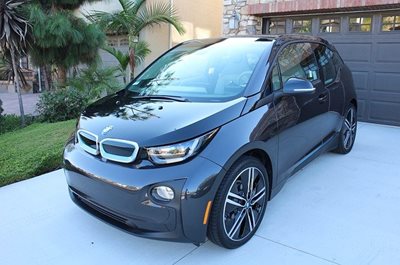 experiencing ‘range anxiety’ if you choose an electric car! This is changing though as newer electric car models have improved range and rapid public charging points are improving. Today the average electric vehicle will do about 350km per charge and some will do much more. Longer journeys will take a little more planning however, so if you enjoy making a plan you should be ok – as long as the public chargers are working and you can charge at your destination. For the more impromptu, off-road, last minute types a pure electric vehicle may not be best suited!
experiencing ‘range anxiety’ if you choose an electric car! This is changing though as newer electric car models have improved range and rapid public charging points are improving. Today the average electric vehicle will do about 350km per charge and some will do much more. Longer journeys will take a little more planning however, so if you enjoy making a plan you should be ok – as long as the public chargers are working and you can charge at your destination. For the more impromptu, off-road, last minute types a pure electric vehicle may not be best suited!
Some handy maps to have of charging points to help you locate and navigate to available charge points would be;
Another consideration before you choose an electric car is where you live - you really need to have a driveway or some other form of off-street parking, so that you can get a charging box fitted to your house and charge overnight. Grants are available to offset the cost of installation – see more below.
If you’re buying an electric car it is exactly what it says on the tin – it runs purely on electric power and you’ll definitely be hitting your low driving emissions target. So if you’re city or town based, stay relatively local, and are green-minded then an electric car could be for you.
New or Second-Hand Electric Car?
The majority of big name car brands all carry electric models. From the Audi e-Tron to Volvo XC40 P8, Renault, Toyota, Kia, Nissan, and Tesla to name but a few all have very worthy options to look at - the Irish Times recently rated a full 36 models or you can check out our summary blog here.
Likewise, nowadays there is also a good choice of second-hand electric vehicles. They can be a great option 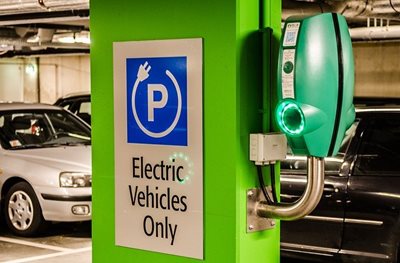 for a second car as a run around for local runs. As with any second-hand vehicle, pay attention to the service history, but when it comes to electric vehicles you need to be especially cognisant of the battery health. Check the battery and car warranties carefully (the battery warranty is generally longer than the car warranty on an electric car.) If the car battery has trouble maintaining battery energy, then you'll need to consider the cost of replacing the battery and if it’s out of battery warranty this can be a substantial cost. Get an independent mechanic to verify the battery if you have any doubts before purchasing.
for a second car as a run around for local runs. As with any second-hand vehicle, pay attention to the service history, but when it comes to electric vehicles you need to be especially cognisant of the battery health. Check the battery and car warranties carefully (the battery warranty is generally longer than the car warranty on an electric car.) If the car battery has trouble maintaining battery energy, then you'll need to consider the cost of replacing the battery and if it’s out of battery warranty this can be a substantial cost. Get an independent mechanic to verify the battery if you have any doubts before purchasing.
As most electric cars on the second hand car market will have been primarily driven in towns/cities it’s also worth checking out suspension and tyres. Other than that, when checking it over it will be just like that of a normal car.
Will I save money with an electric car?
While fully electric cars (for now) are more expensive to buy, they are massively cheaper to run than diesel or petrol cars. They are cheaper to service, have less wear and tear both due to fewer moving parts, and are cheaper to fuel. While you will pay for the electricity, and be prepared to see an increase in your electricity bill, this is offset by a large reduction or complete elimination of a petrol or diesel bill. There are also grants available for installing a charger at home for both Irish and Northern Irish consumers, so over the lifetime of the car you will make significant savings.
Likewise, your motor tax will also be much cheaper, or none at all if you live in Northern Ireland! In the Republic 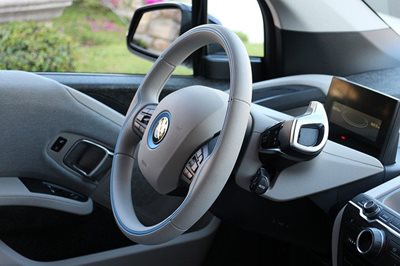 of Ireland Road tax is calculated on the emissions level of your vehicle, so an electric battery vehicle falls into the lowest bracket. Currently, motor tax for an electric car is just €120 a year. In Northern Ireland pure electric
of Ireland Road tax is calculated on the emissions level of your vehicle, so an electric battery vehicle falls into the lowest bracket. Currently, motor tax for an electric car is just €120 a year. In Northern Ireland pure electric
vehicles qualify for free road tax.
Other savings include reduced tolls for low emission vehicles, while some insurance companies also offer discounts on electric cars so be sure to do your homework on this.
Read on for more info on financial assistance and grants available for electric cars and check out our blog on cost savings when buying an electric car here.
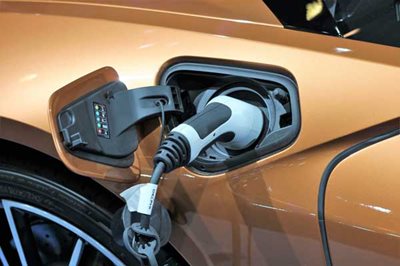 Can I get a grant for an electric car?
Can I get a grant for an electric car?
According to an RTE article, Ireland has some of the most generous supports in the world for an electric vehicle purchase. These include a purchase grant, vehicle registration tax relief, a toll incentive, a home charger installation grant, and reduced motor tax rates. In total, the average electric vehicle purchaser receives a direct subsidy from the state of over €10,000.
You should fully inform yourself about the Sustainable Energy Authority of Ireland (SEAI) grants bearing in mind grants are not available for electric cars costing less than €14,000. Once you have decided on the model of electric car you want, the car dealer will apply for the grant on your behalf and this will be deducted from the overall price. At present, all new electric vehicles registered in Ireland also receive Vehicle Registration Tax (VRT) relief up to a maximum of €5,000. Plug-in hybrids do not qualify for VRT reductions, but they are eligible for the full SEAI grant support. Check out the SEAI website for more on electric car grants.
For Northern Irish consumers the Government is offering grants of up to £3,000 towards the purchase of approved low-emission vehicles. To be eligible for the grant, cars must cost less than £50,000. This is the recommended retail price (RRP), and includes VAT and delivery fees.
Can I get a loan for an electric car?
Yes. Credit unions love to see their local community do their bit for the environment and are more than willing to give loans for electric cars (subject to terms and conditions). Interested in one of the more expensive electric cars? No problem!
Loan officers in credit unions will always work with borrowers to structure loan repayments in a way that suits their financial circumstances best. Terms are straightforward and transparent, with no hidden charges or admin fees. Car loans are typically approved very quickly. Our blog will tell you all you need to know about a credit union car loan.
So if you’re in the market for a car loan why not contact your local credit union who will come back to you with details on the interest rates they currently offer? Alternatively, to see what the average car loan rate will cost you – check out our handy loan calculator. 
Keep an eye out for #4WheelGuide across Facebook, Twitter, or Instagram for more great advice on budgeting, choosing and buying your car as well as design and style ideas and inspiring stories – so you can gear up for the car of your dreams.